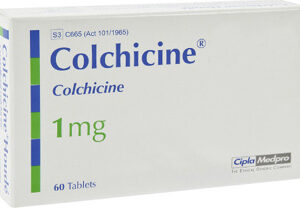Indocin Overview
Indocin, known generically as indomethacin, belongs to a class of medications referred to as nonsteroidal anti-inflammatory drugs (NSAIDs). These agents work by inhibiting certain substances in the body that are linked to inflammation and pain. Indocin is notable for its potent efficacy in relieving moderate to severe pain, reducing inflammation, and treating stiffness resulting from various conditions including arthritis, gout, bursitis, and tendonitis.
Indication for Use
This medication is mainly prescribed for the treatment of inflammation and pain associated with various arthritic conditions such as osteoarthritis, rheumatoid arthritis, and ankylosing spondylitis. Indocin is also employed in the management of acute painful shoulder (bursitis and/or tendonitis), gouty arthritis, and for the relief of pain in other situations where inflammation is a contributor.
Dosage and Administration
Indocin should be taken exactly as prescribed by the healthcare provider. It’s available in different forms including capsules, oral suspension, and suppositories. The dosage varies based on the individual’s medical condition and response to treatment. It’s generally recommended to take the lowest effective dose for the shortest duration possible to minimize the risk of adverse effects. Certain formulations may require shaking before use and it is important to measure doses carefully when using the liquid form.
Warnings and Precautions
Long-term use of NSAIDs like Indocin has been associated with increased risk of potentially fatal heart or circulation problems, including heart attack or stroke. Indocin can also harm the gastrointestinal tract, causing ulcers, bleeding, or perforation of the stomach or intestines. These conditions can be fatal and gastrointestinal effects can occur without warning, especially in older adults.
Patients should be warned to remain vigilant for symptoms of such events and to avoid the use of Indocin immediately before or after heart bypass surgery. Caution is also advised in individuals with preexisting hypertension, heart disease, liver or kidney issues, as Indocin may exacerbate these conditions.
Contraindications
Indocin is contraindicated in individuals who have experienced asthma attacks, urticaria, or allergic-type reactions after taking aspirin or other NSAIDs. It’s also contraindicated for the treatment of peri-operative pain in the setting of coronary artery bypass graft (CABG) surgery. Special caution should be observed in patients with a history of gastrointestinal bleeding or peptic ulcer disease, and in those with known hypersensitivity to indomethacin or its excipients.
Drug Interactions
Indocin can interact with several other medications, which can affect how it works or increase the risk of serious side effects. This includes but is not limited to certain blood pressure medications, other NSAIDs, anticoagulants, corticosteroids, and medications affecting liver enzymes that remove Indocin from your body. It’s crucial to inform the healthcare provider of all medications currently being taken, including over-the-counter drugs and supplements.
Side Effects
While effective in managing pain and inflammation, Indocin can cause side effects ranging from mild to severe. Common adverse reactions include gastrointestinal discomfort, headache, dizziness, and fatigue. More severe side effects, though less common, can manifest as heart attack, stroke, high blood pressure, heart failure from body swelling (fluid retention), kidney problems, bleeding and ulcers in the stomach and intestine, anemia, life-threatening skin reactions, and allergic reactions. Patients experiencing severe side effects should seek medical attention immediately.
Monitoring and Tests
Routine monitoring and laboratory tests are recommended while on Indocin therapy. These can include blood pressure checks, complete blood count, kidney and liver function tests, and monitoring for signs of gastrointestinal bleeding. Regular assessments help to catch potential complications early and adjust treatment as needed.
Special Populations
Certain populations require extra caution when using Indocin. For pregnant women, it is not recommended during late pregnancy due to the risk of fetal harm. Lactating mothers should also consider the potential for serious adverse reactions from Indocin in breastfed infants. Geriatric patients are at a higher risk of experiencing adverse effects and may necessitate lower doses. Individuals with impaired renal or hepatic function should use this medication with caution and under close supervision.
Overdose and Treatment
An overdose of Indocin can be dangerous and immediate medical attention is necessary. Symptoms may include severe headaches, nausea, vomiting, dizziness, confusion, and gastrointestinal bleeding. Supportive and symptomatic treatment should be provided, with measures aimed at correcting dehydration and maintaining vital functions.
Patient Counseling
Patients should be counseled on the proper use of Indocin, including adherence to prescribed doses, avoidance of alcohol Consumption, and warning signs of serious side effects. They should also be advised to inform their healthcare provider about any new symptoms or changes in health.
Storage and Handling
Indocin should be stored at room temperature away from moisture and heat. The medication should be kept out of reach of children and pets, and properly disposed of when no longer needed or expired.



Reviews
There are no reviews yet.